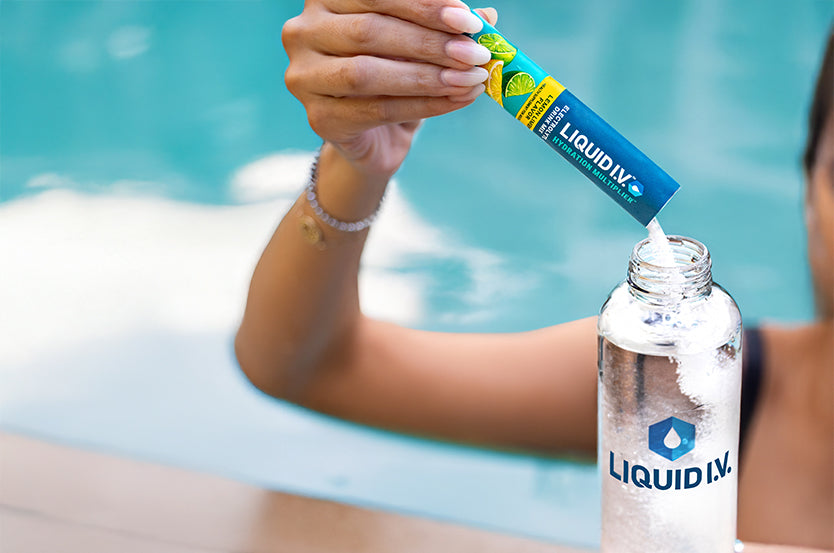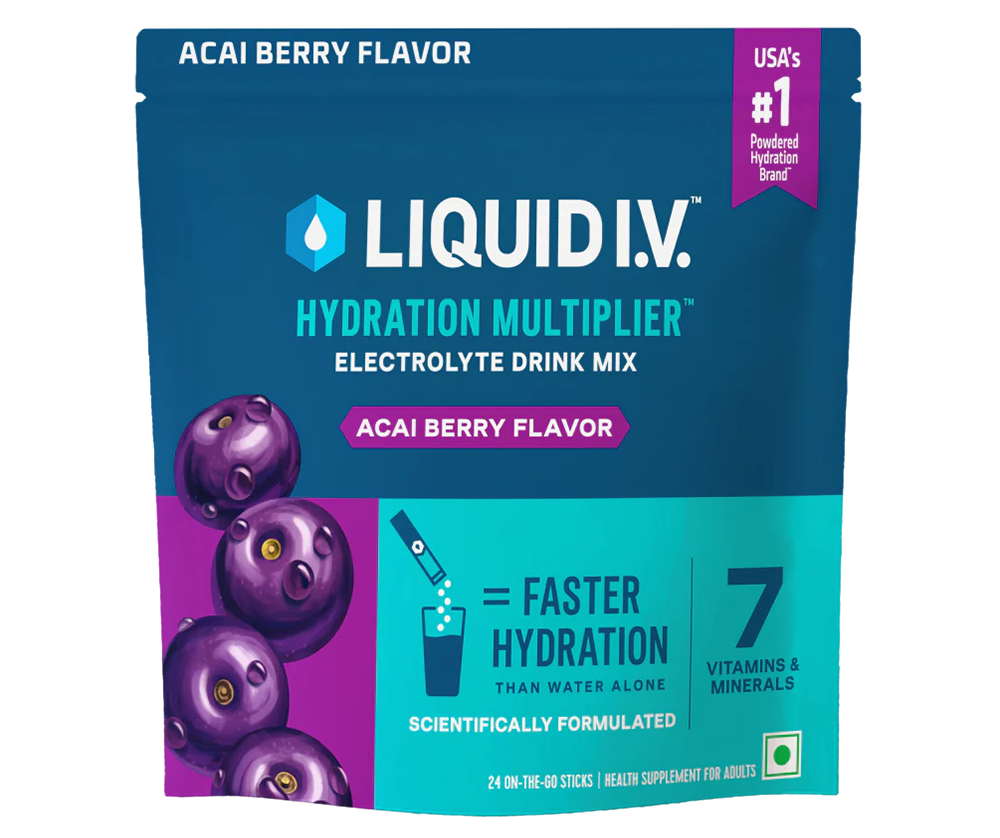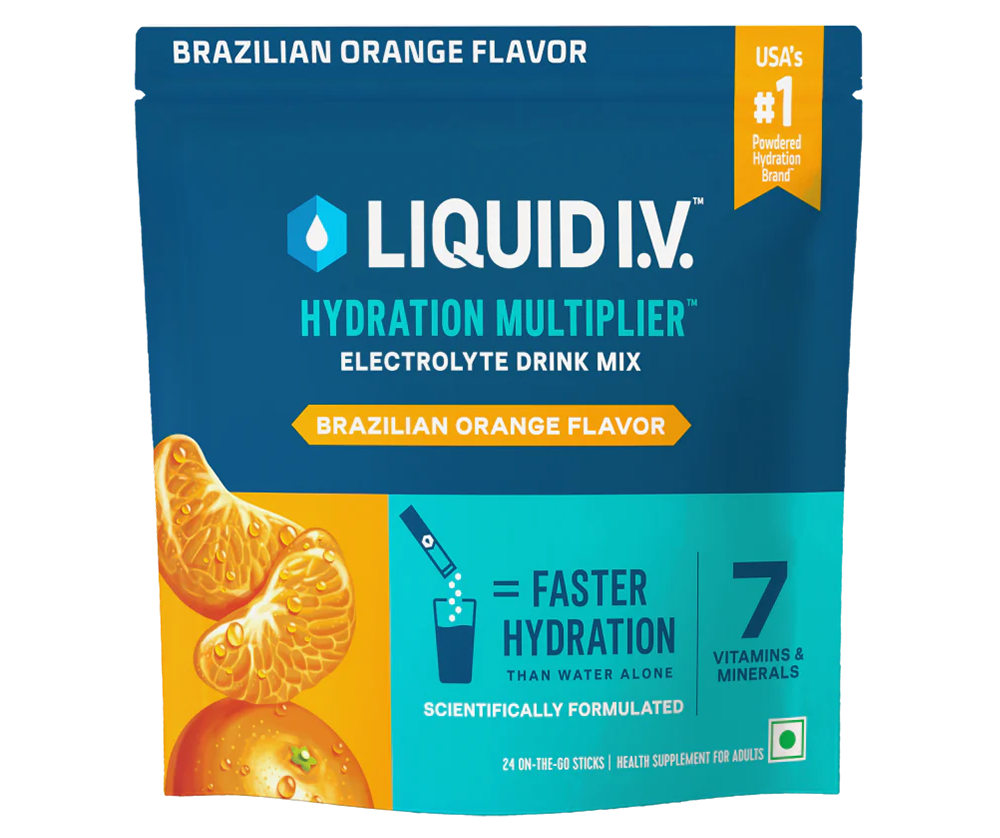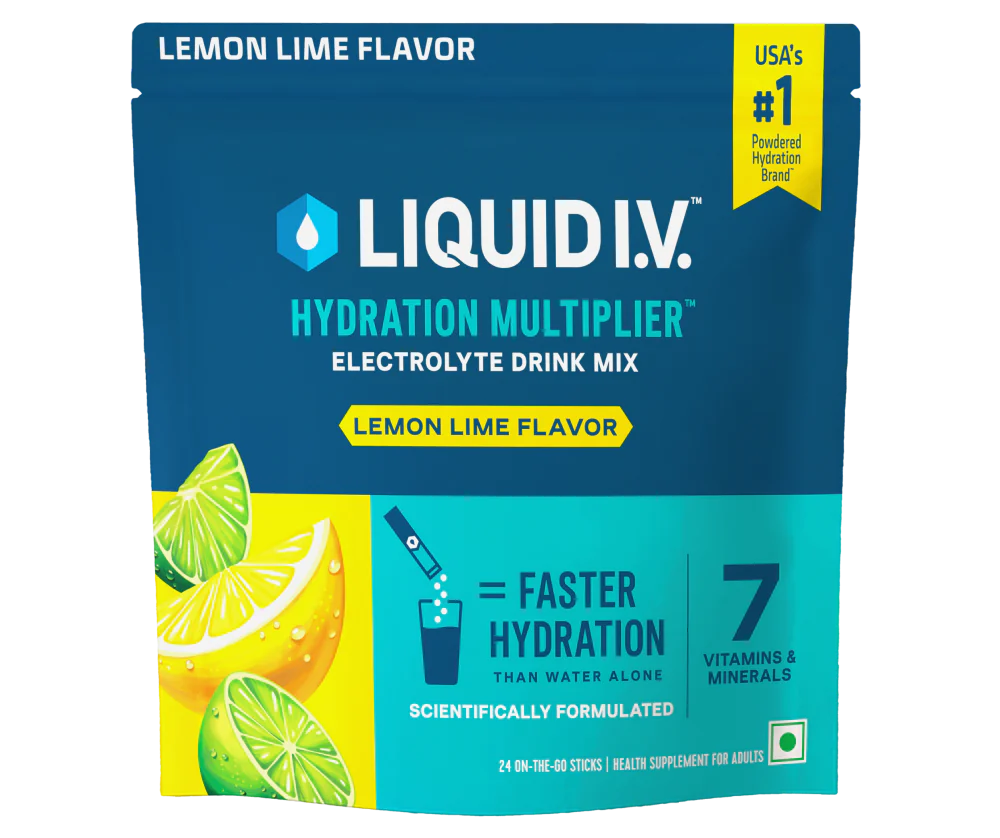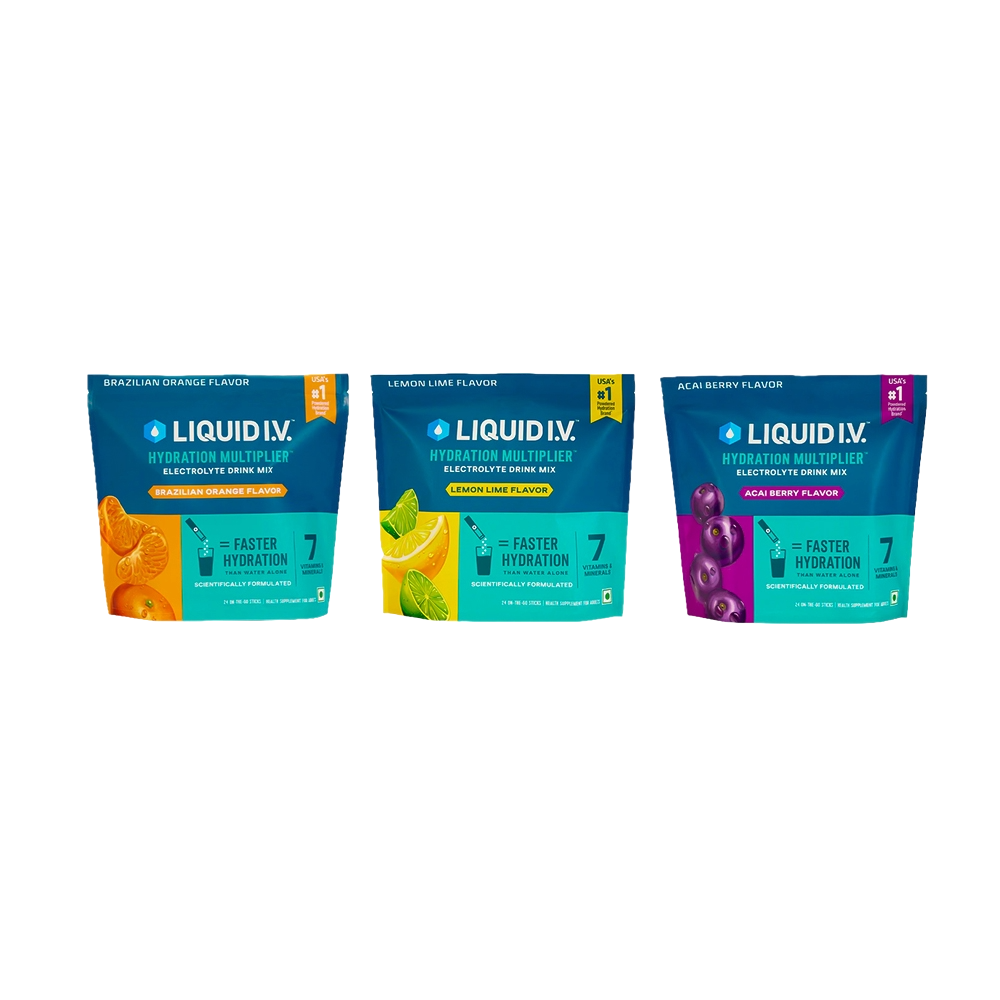Understanding Homemade Electrolyte Drinks and Their Benefits
Staying hydrated is, super important! It affects everything - from how good you feel to how well your muscles work. Sure, water is essential, but sometimes your body needs a little extra, especially when you're working out hard, or dealing with hot weather. That's where electrolytes come in - these charged minerals help keep your body's fluid balance in check and support a bunch of important processes. (1)
Ever tried whipping up your own electrolyte drinks? Think of it: your fav nimbu pani, refreshing sherbet, or that chilled coconut water - they’re all packed with electrolytes! Pretty cool, right? But here’s the tea: While they’re great as you chill at home after a long day, they might not always get the job done when your body is craving hardcore hydration. Wondering when to sip your DIY mix and when to grab a pro electrolyte drink? Don’t sweat it, we’ve got all the deets lined up for you! Keep reading!
What is Electrolyte Water?
Firstly, what are electrolytes? They're basically tiny mineral powerhouses that turn water into a hydration upgrade. We’re talking sodium, potassium, chloride, and others-aka the squad keeping your body running smoothly. These charged minerals do way more than just keep you hydrated. They balance fluids inside and outside your cells, keep your nerves and muscles firing properly, transport nutrients, flush out waste, and even keep your blood’s pH level in check. (2)
Now, electrolyte water isn’t just regular H₂O-it is water supercharged with these minerals. They come in clutch, especially after intense workouts, travel days, or during anything that drains your fluid reserve. You can drink some regular water too, but if you add electrolytes to them, they help your body absorb and hold onto fluids way more efficiently. This becomes a total game-changer when you need to bounce back fast from feeling a bit parched and dehydrated. (3)
Should You Make Electrolyte Drinks at Home?
Opting to create your own electrolyte drinks at home have its own benefits. The best part about going the DIY route is you get to add what you love, and as much as you love. A little saltier? A little sweeter? Well, go ahead and suit your taste buds! But here’s the spill. In doing so, you might not land the most efficient hydration recipe. You wonder why? Well to explain that let me tell you a little bit about hydration science and about the concept called “tonicity”!
Imagine your cells are like little sponges. Hypotonic drinks are like light water - your sponge soaks them up super-fast, making them perfect choice for time when signs of dehydration have set in. Isotonic drinks keep the sponge moist; they match your body’s natural balance and help you maintain your state of hydration. But hypertonic drinks? They're like a thick syrupy fluid that pulls moisture out of your sponge - not ideal when you're trying to stay hydrated.
So, for daily sipping, stick with isotonic options like water. For quick rehydration after workouts, travel, or hot days, go for hypotonic mixes. Products like Liquid I.V., with their optimal blend of glucose and electrolytes, are designed to hydrate efficiently. And Hypertonic drinks? your sugary sports drink or your sugar loaded DIY sherbet? Well save it for another time.
The truth is, when we make electrolyte drinks at home, we often optimize for flavour—not function. And that means we might miss the hydration sweet spot.
Robin Behl, a renowned fitness coach and cofounder of The Tribe, shared some wisdom on hydration, saying, “I take hydration very seriously! On easy days at home, I sip onto homemade options like nimbu pani or coconut water. They’re refreshing. But when I’m pushing my limits during intense training sessions, I don’t take chances. I turn to scientifically formulated electrolyte drinks that offer the right balance. An optimal dose of sodium is crucial for me because I lose a significant amount through sweat during workouts.” Scientifically formulated blends like Liquid I.V. offer a balanced mix of electrolytes, including a substantial dose of sodium, which supports effective hydration during intense workouts or on hot, humid days. Additionally, Liquid I.V. products are enriched with various vitamins that contribute to well-being. (4)
What are Some Key Ingredients for DIY Electrolyte Drinks?
Making your own hydration drinks at home is super easy and only needs a few simple ingredients. First up, you need water, which is the main thing for hydration. Then, add some salt, regular or Himalayan to replace some of the sodium and chloride you lose when you sweat. Citrus juices like lemon, lime, or orange juice not only taste great but also give you some more minerals like potassium. (5,6)
Conclusion
While water is the gold standard for hydration, making your own electrolyte drinks at home can be a simple way to take control of your hydration needs. These homemade drinks can be customized just the way you like it. But remember, when you need a quick and effective hydration, you might want to hit the right tonicity. Picking up a trusted brand, that offer a science back formula may be a good idea!
FAQ's
-
What are good natural electrolyte drinks?
Coconut water is often considered as a good natural electrolyte drink; however, it does not have a complete electrolyte profile. Other options are skimmed milk and fruit juices (consumed in moderation due to their sugar content). -
What homemade drinks replace electrolytes?
Homemade electrolyte drinks made with coconut water or fruit juices can help replenish some electrolytes, but they may not contain optimal mix and level of electrolytes. -
Can I drink electrolytes every day?
Yes you can, unless you have a medical condition.

